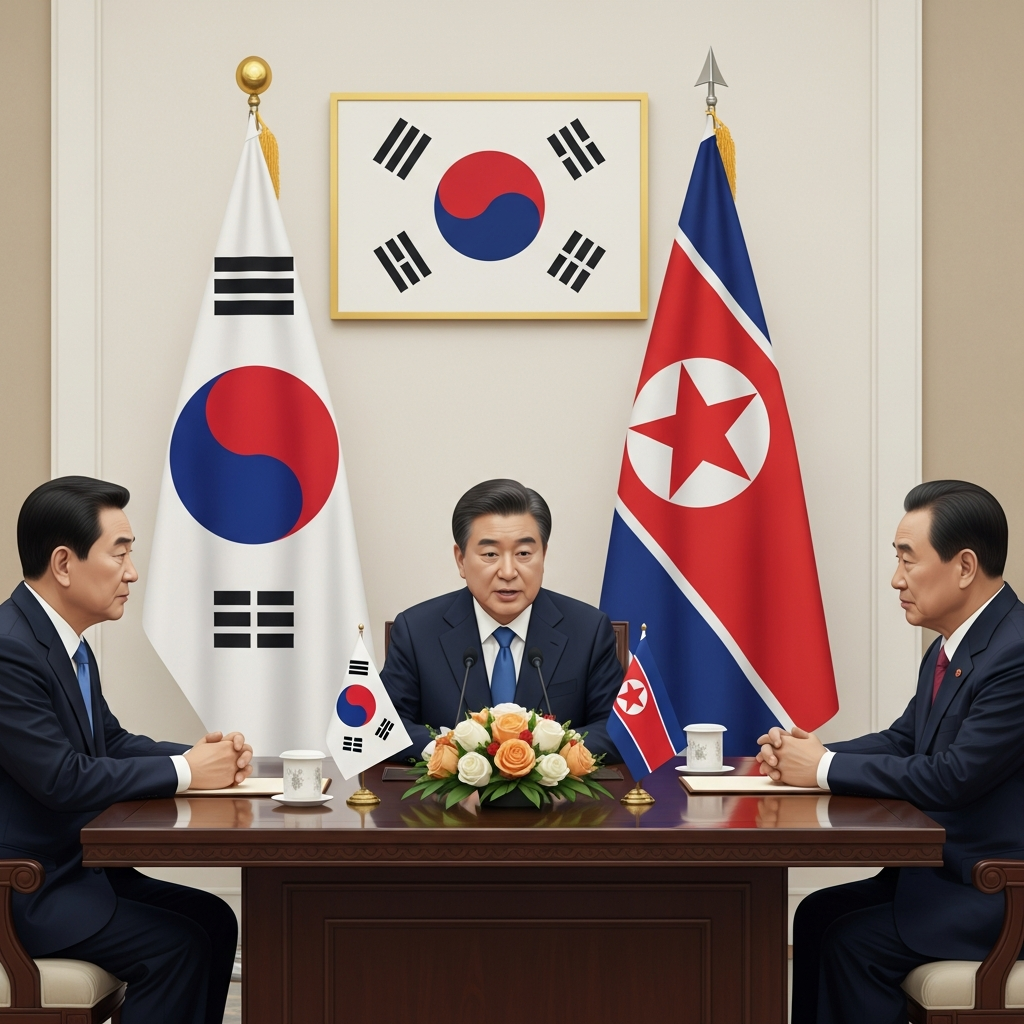A moment of British tradition unfolds in Windsor. King Charles III and Queen Camilla ride in a carriage, joined by French president Emmanuel Macron and his wife, Brigitte. This July 2025 event marks the first UK state visit by a French leader since 2008. It’s also the first by a European Union head of state since the UK left the bloc. More than mere pageantry, this gathering holds deep significance.
Prince William and Catherine, Princess of Wales, are also present. Cannons fire a Royal Salute. President Macron inspects an honour guard. Yet, in a time of global volatility, these three days in Windsor and London aim for much more than ceremonial greetings. There is genuine optimism on both sides of the Channel. Leaders hope this visit makes a tangible difference.
Mending a Strained Relationship
UK-france relations have faced significant challenges recently. Tensions flared during Brexit negotiations. President Macron once stated Brexit was based on a lie. A major diplomatic row erupted four years ago over the AUKUS security pact. Australia cancelled a deal for French submarines. They instead signed a defence agreement with the UK and US. France’s foreign minister called it a “stab in the back.” Then-Prime Minister Boris Johnson added insult to injury with dismissive comments in French.
However, the mood has shifted. Less than two months before this state visit, the UK and EU agreed to “reset” relations. Ties with France, specifically, have warmed considerably. This improvement stems partly from personal connections between leaders. Strategic necessity also plays a key role. The two nations share much in common. Both are nuclear powers. Both hold permanent seats on the UN Security Council.
The King’s Indispensable Diplomatic Role
King Charles III is far more than a figurehead in this diplomatic dance. At 76, he possesses decades of experience in international affairs. He is also fluent in French. He attended the funeral of Charles de Gaulle in 1970 at just 21 years old. This marked his first significant interaction with French leadership. As Prince of Wales, he became the longest-serving holder of that title. He now holds weekly audiences with the British Prime Minister. Royal commentators describe a complex “choreography” between Downing Street and the Palace.
The King’s personal history bolsters his impact. He is known as a francophile. French media commentators attest to his consistently good relationship with France. A year after Queen Elizabeth II’s passing, King Charles and Queen Camilla chose France for their first state visit in September 2023. This symbolic choice was met with warmth. President Macron publicly acknowledged the late Queen’s frequent visits to the Élysée Palace. During his 2023 visit, King Charles received a standing ovation after addressing the French Senate in French. He urged the two nations to find common ground. He called for them “to reinvigorate our friendship to ensure it is fit for the challenge of this, the 21st Century.”
Royal ‘Soft Power’ in Action
The King actively uses royal diplomacy. He recently welcomed Ukrainian President Volodymyr Zelenskyy to Sandringham and later Windsor. He has spoken passionately about Ukrainian heroism. This state visit is another example of leveraging “soft power.” Hosting President Macron at Windsor Castle, despite ongoing renovations at Buckingham Palace, highlights its importance. The presence of the Prince and Princess of Wales also adds weight to the welcome. It underscores the enduring nature of the relationship.
State visits, guided by the Foreign and Commonwealth Office, are strategic tools. They enhance trade, cultural, and defence links. King Charles maintaining a busy international schedule, even while receiving cancer treatment, emphasizes the significance placed on these alliances. He recently visited Italy and is scheduled to visit Canada. Canada, too, is seeking to strengthen ties with Commonwealth allies like the UK. This shift comes amidst strained relations with the United States under President Trump, demonstrating a broader trend among allies seeking resilience through alternative partnerships. A second invitation for Trump to visit the UK is also anticipated, adding another layer to the complex diplomatic calendar.
Summit Focus: Security and Stability
The visit includes significant political engagement. President Macron will address UK Members of Parliament and peers in Westminster. A state banquet takes place back at Windsor. The trip culminates in a UK-France summit. Prime Minister Sir Keir Starmer co-chairs this vital meeting with President Macron. Discussions will span several critical areas. Defence, migration, nuclear energy, artificial intelligence, and cultural ties are on the agenda. Differences over “post-Brexit mobility” for students and young people are also expected. France will likely press the UK government on this issue.
Reinforcing Defence Cooperation
Defence cooperation remains a cornerstone of the alliance. The nations are looking to update their 15-year-old Lancaster House treaties. These treaties established the Combined Joint Expeditionary Force (CJEF). They aim to broaden this framework. Incorporating other NATO and European countries is a key objective. Former French Ambassador Sylvie Bermann describes the defence relationship as “closer than any other countries.” Preparing for the future and strengthening European deterrence are shared goals. The summit will focus on maintaining Ukraine’s combat capability. Regenerating its military is also a priority. Maintaining arms supplies is crucial. The leaders will host Ukraine’s leader virtually. If a ceasefire were agreed, the UK and France could form the backbone of a “reassurance force.” Military chiefs of staff from both nations are already involved in this planning.
Tackling the Migration Challenge
Migration presents the “stickiest problem.” How the countries handle differences here is crucial. Reaching an agreement on returning irregular migrants is a top priority. Specifically, they seek ways to stop small boat crossings across the Channel. France argues the UK must address “pull factors.” These factors drive people to attempt the dangerous crossing. The UK already contributes financially to French police patrols. Around 1,200 French gendarmes patrol the northern coastline. The aim is to stop smuggler boats.
A “one-in, one-out” agreement is reportedly under consideration. For every small boat arrival in the UK that France takes back, the UK might allow one asylum seeker from France for family reunification. This proposal faces challenges. Southern European countries are wary. They fear returned asylum seekers could be sent back to their original EU entry point. In the UK, opposition parties criticize the idea. They call it “pathetic” and a failure to curb crossings. Yet, many European nations seek ways to reduce illegal border crossings. Meghan Benton of the Migration Policy Institute sees a Franco-British deal as a potential pilot. “What works for the Channel could also work for the Mediterranean,” she suggests. A breakthrough on this issue would signal a real improvement. France’s Interior Minister and the UK’s Home Secretary have already been working together. This reflects a new willingness to tackle divisions.
Lingering Mistrust and Shared Threats
Despite recent improvements, some mistrust remains. Sébastien Maillard, who advised on establishing the European Political Community (EPC), notes that the “memory of these difficult times has not vanished.” Building trust takes time. However, shared threats provide compelling reasons for cooperation. The Russian threat, support for Ukraine, and uncertainty about managing potential future US policies under a President Trump are major motivators. Susi Dennison of the European Council on Foreign Relations agrees relations aren’t back to pre-Brexit levels. But she notes some “bickering” existed even before Brexit.
For President Macron, the visit offers a chance to shine internationally. His popularity at home is currently low. He faced political costs after calling snap elections. His government lost its majority. His Prime Minister faces a difficult task steering the next budget. Foreign policy, defence, and security fall under Macron’s direct authority (domaine réservé). Attending a state visit allows him to project strength on the world stage. The French public remains fascinated by the Royal Family, adding to the visit’s domestic appeal for him.
A Chapter Closed?
Boris Johnson once accused France of seeking to punish the UK for Brexit. That particularly difficult chapter appears to be over. While “a certain distance” may always exist between the two neighbours, Susi Dennison observes that “things are operating quite well.” The state visit provides a platform to test this reality. It showcases not only relationships between individuals but also concrete progress on policy debates. The visit will help demonstrate if King Charles’s call to reinvigorate the friendship has been answered.
Frequently Asked Questions
What is the purpose of President Macron’s state visit to the UK?
President Macron’s state visit in July 2025 aims to significantly strengthen UK-France relations. Hosted by King Charles III at Windsor Castle, it is the first by a French president since 2008 and the first by an EU leader post-Brexit. Beyond ceremony, the visit focuses on resetting the bilateral friendship, enhancing cooperation in key areas like defence and security, addressing challenging issues such as migration, and demonstrating unity amidst global uncertainties, including supporting Ukraine and managing potential shifts in US foreign policy.
What specific issues are being discussed during the UK-France summit?
The UK-France summit, co-chaired by Prime Minister Sir Keir Starmer and President Macron, covers a broad agenda. Key discussions include defence cooperation, potentially updating the Lancaster House treaties and enhancing the Combined Joint Expeditionary Force (CJEF). Migration is a major focus, specifically seeking agreements on returning irregular migrants and stopping small boat crossings. Other topics include support for Ukraine, nuclear energy, artificial intelligence, cultural ties, and resolving issues related to post-Brexit mobility for young people.
How does King Charles III contribute to UK-France diplomatic efforts?
King Charles III plays a crucial role in diplomacy, extending beyond a symbolic presence. He possesses extensive international experience and is fluent in French. His personal connection to France and status as a francophile help build rapport. State visits he hosts, like Macron’s, leverage royal “soft power” to reinforce alliances. His previous visit to France in 2023 was instrumental in warming relations. By meeting world leaders, hosting state banquets, and giving speeches, he facilitates dialogue and underscores the importance the UK places on key bilateral relationships, complementing political efforts.
Conclusion
President Macron’s state visit to the UK represents a pivotal moment. It seeks to move past recent difficulties and build a stronger future for UK-France relations. Backed by the symbolic weight and diplomatic experience of King Charles III, the visit tackles complex issues head-on. Success in areas like defence cooperation and migration could signal a genuine reset. While historic mistrust lingers, shared strategic interests provide powerful motivation. The outcome of this visit will offer clear insights into the true state of the Franco-British friendship in the 21st Century.
Word Count Check: 1171 words



